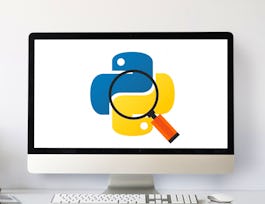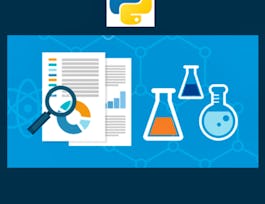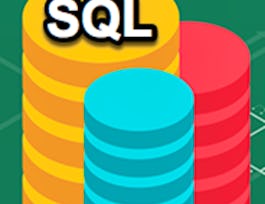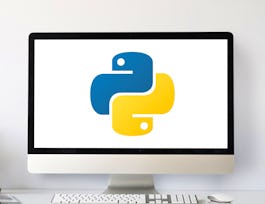If there is a shortcut to becoming a Data Scientist, then learning to think and work like a successful Data Scientist is it. In this course, you will learn and then apply this methodology that you can use to tackle any Data Science scenario. You’ll explore two notable data science methodologies, Foundational Data Science Methodology, and the six-stage CRISP-DM data science methodology, and learn how to apply these data science methodologies. Most established data scientists follow these or similar methodologies for solving data science problems.


Data Science Methodology
This course is part of multiple programs.
Taught in English
Some content may not be translated


Instructors: Alex Aklson
289,596 already enrolled
Included with 
Course
(19,970 reviews)
94%
Recommended experience
What you'll learn
Describe what a data science methodology is and why data scientists need a methodology.
Apply the six stages in the Cross-Industry Process for Data Mining (CRISP-DM) methodology to analyze a case study.
Evaluate which analytic model is appropriate among predictive, descriptive, and classification models used to analyze a case study.
Determine appropriate data sources for your data science analysis methodology.
Skills you'll gain
Details to know

Add to your LinkedIn profile
11 assignments
Course
(19,970 reviews)
94%
Recommended experience
See how employees at top companies are mastering in-demand skills

Build your subject-matter expertise
- Learn new concepts from industry experts
- Gain a foundational understanding of a subject or tool
- Develop job-relevant skills with hands-on projects
- Earn a shareable career certificate


Earn a career certificate
Add this credential to your LinkedIn profile, resume, or CV
Share it on social media and in your performance review

There are 4 modules in this course
In this module, you will discover what makes data science interesting, learn what a data science methodology is, and why data scientists need a data science methodology. Next, you’ll gain more in-depth knowledge of the first two data science methodology stages: Business Understanding and Analytic Approach. You’ll discover how to identify considerations and steps needed to define the data requirements for decision tree classification during the Data Requirements stage. Next, learn about the processes and techniques data scientists use to assess data content, quality, and initial insights and how data scientists manage data gaps. Round out this week with practical hands-on experience learning how to approach the Business Understanding and the Analytic Approach stage tasks and the Data Requirements and Collection stage tasks for any data science problem.
What's included
6 videos1 reading4 assignments1 app item7 plugins
In this module, you will learn what data scientists do when their tasks and goals are to understand, prepare, and clean the data. You’ll examine the purposes, characteristics, and goals of the data modeling process. You’ll also explore how to prepare a data set by handling missing, invalid, or misleading data. Then check out the hands-on labs where you can gain experience completing tasks relevant to the Data Understanding, Data Preparation, and Modeling and Evaluation stages. You’ll be able to apply the skills you learn to future data science problems.
What's included
6 videos4 assignments2 app items4 plugins
When you complete this module, you’ll be able to describe the deployment and feedback stages of the data science methodology. You’ll learn how to assess a data model’s performance, impact, and readiness. You’ll be able to identify the stakeholders who usually contribute to model refinement. You’ll also be able to explain why deployment and feedback should be an iterative process. To complete your hands-on lab experience, you’ll devise a business problem to solve using data related to email, hospitals, or credit cards. You’ll demonstrate your understanding of data science methodology by applying it to a given problem. You’ll construct responses that address each phase of the CRISP-DM based on a chosen business problem. After submitting your work, you’ll evaluate your peers’ final projects and provide constructive ideas and suggestions that fellow learners can apply right away.
What's included
4 videos2 assignments2 plugins
Before completing your final project, learn how CRISP-DM data science methodology compares to John Rollins’ foundational data science methodology. Then, apply what you learned to complete a peer-graded assignment using CRISP-DM data science methodology to solve a business problem you define. You'll first take on both the client and data scientist role and describe how you would apply CRISP-DM data science methodology to solve the business problem. Then, take on the role of a data scientist and apply your knowledge of CRISP-DM data methodology stages to describe how you would solve the business problem. After you submit your assignment, you'll grade the assignment of one peer who is enrolled in this session. Let's get started!
What's included
1 video4 readings1 assignment1 peer review1 plugin
Offered by
Recommended if you're interested in Data Analysis
Why people choose Coursera for their career




Learner reviews
Showing 3 of 19970
19,970 reviews
- 5 stars
71.29%
- 4 stars
21.44%
- 3 stars
4.85%
- 2 stars
1.55%
- 1 star
0.86%
New to Data Analysis? Start here.

Open new doors with Coursera Plus
Unlimited access to 7,000+ world-class courses, hands-on projects, and job-ready certificate programs - all included in your subscription
Advance your career with an online degree
Earn a degree from world-class universities - 100% online
Join over 3,400 global companies that choose Coursera for Business
Upskill your employees to excel in the digital economy
Frequently asked questions
Access to lectures and assignments depends on your type of enrollment. If you take a course in audit mode, you will be able to see most course materials for free. To access graded assignments and to earn a Certificate, you will need to purchase the Certificate experience, during or after your audit. If you don't see the audit option:
The course may not offer an audit option. You can try a Free Trial instead, or apply for Financial Aid.
The course may offer 'Full Course, No Certificate' instead. This option lets you see all course materials, submit required assessments, and get a final grade. This also means that you will not be able to purchase a Certificate experience.
When you enroll in the course, you get access to all of the courses in the Certificate, and you earn a certificate when you complete the work. Your electronic Certificate will be added to your Accomplishments page - from there, you can print your Certificate or add it to your LinkedIn profile. If you only want to read and view the course content, you can audit the course for free.
If you subscribed, you get a 7-day free trial during which you can cancel at no penalty. After that, we don’t give refunds, but you can cancel your subscription at any time. See our full refund policy.





